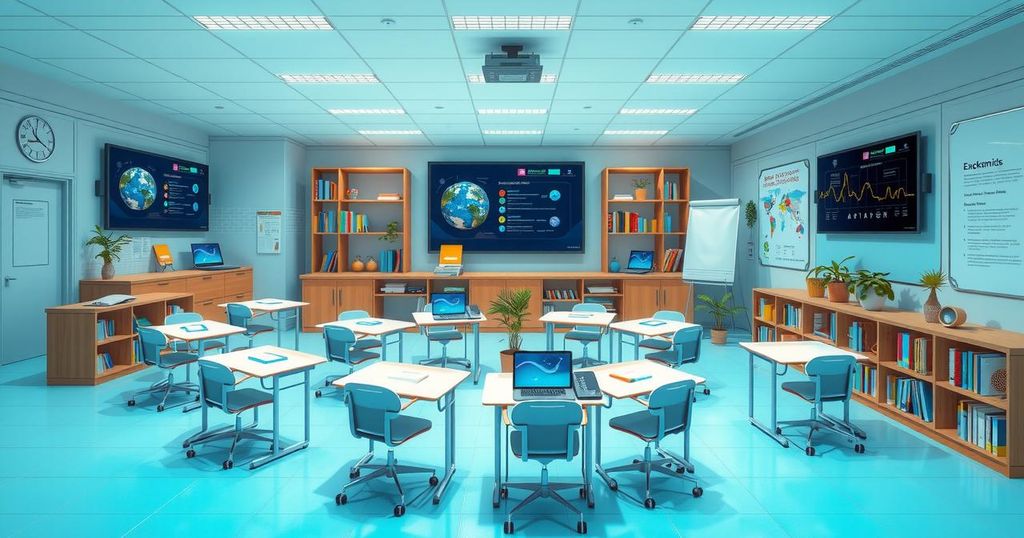China Integrates AI into Education Reform Strategy
China plans to embed AI into education, transforming teaching methods and curricula. The initiative targets enhanced skills in students and teachers, aligning with a national strategy for innovation and economic growth. AI-focused courses are already being introduced in universities, signaling a push towards a modernized educational landscape.
In a landmark decision, China plans to revolutionize its education system by embedding artificial intelligence (AI) into teaching methods, curricula, and textbooks across all educational stages. This initiative, detailed in a recent government white paper, aligns with China’s strategy to foster innovation and fuel economic growth.
The Chinese Ministry of Education emphasizes that AI integration aims to modernize classrooms and enhance the core competencies of both students and teachers. These competencies include independent thinking, problem-solving skills, effective communication, and collaboration.
A ministry statement highlighted, “The use of AI will help cultivate the basic abilities of teachers and students, and boost the core competitiveness of innovative talents.” The initiative is also already underway in universities, with AI-focused courses being introduced and enrollment in these programs expanding, thanks to a surge in interest following the launch of a competitive AI model by DeepSeek.
This educational transformation complements China’s national “strong-education nation” strategy, aimed at achieving its goals by 2035. The initiative seeks to enhance innovation and efficiency within academic and technological domains, preparing students for challenges in a fast-paced global economy.
Officials believe that AI-integrated classrooms will foster dynamic and engaging learning environments. These advancements are intended to equip students with the skills necessary to thrive in an evolving market, bridging the current educational gaps and preparing a new generation of thinkers and innovators.
In conclusion, China’s decision to integrate AI into its education system marks a significant step towards modernizing learning environments and enhancing core competencies among students and educators. By aligning with a broader national strategy, this initiative seeks to prepare the next generation for the complexities of the global economy and cultivate innovative talents crucial for the nation’s growth.
Original Source: www.arise.tv




Post Comment